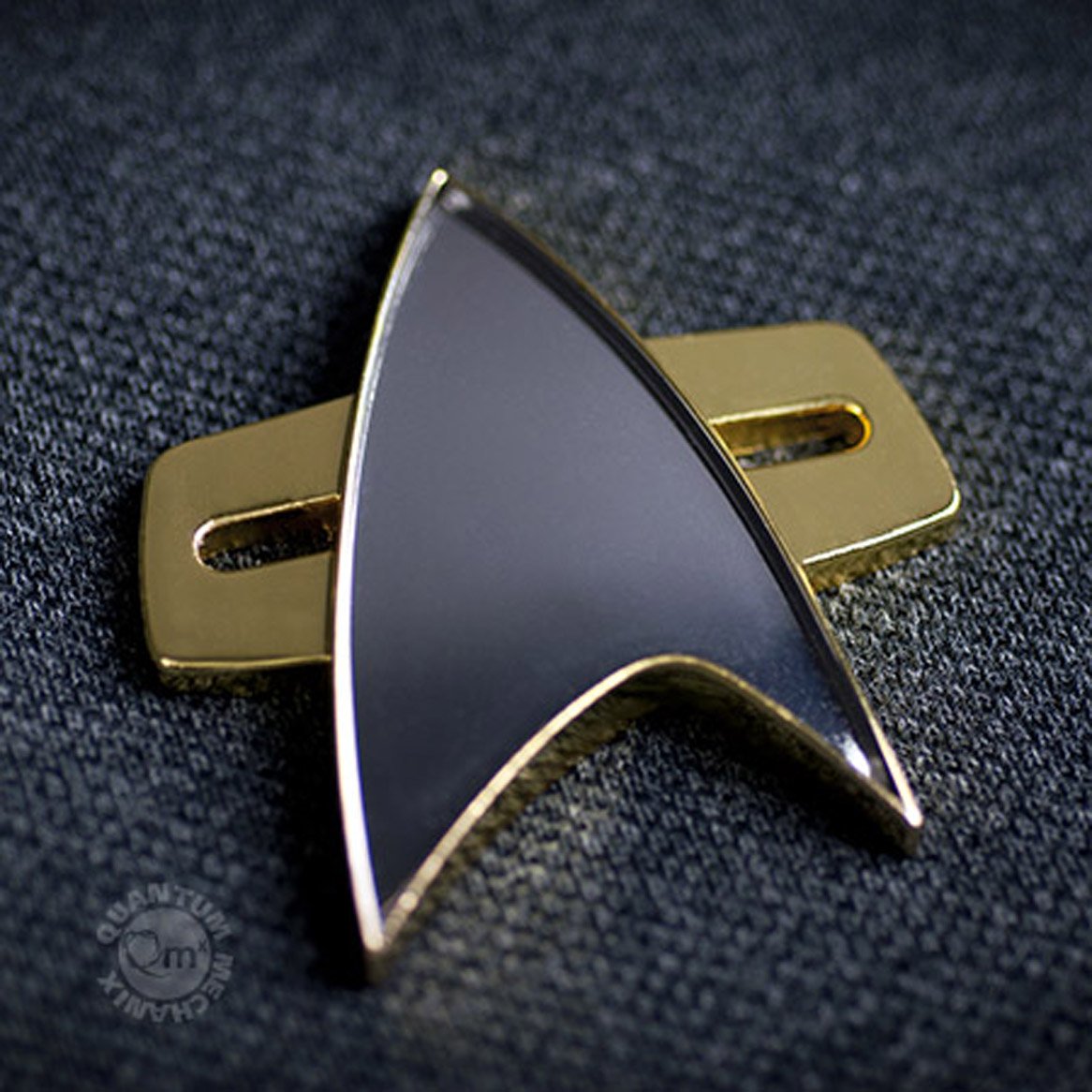This is the Daystrom Institute Episode Analysis thread for Strange New Worlds 2x02 Ad Astra Per Aspera.
Now that we’ve had a few days to digest the content of the latest episode, this thread is a place to dig a little deeper.
I think it would behoove the series to revisit this issue in the future, and maybe shed some more light on why the eugenics laws exist, and why they’re implemented in the way that they are.
As it stands, they haven’t done much more than gesture toward the Eugenics Wars and said, “we don’t want that to happen again.” That’s pretty much the bare minimum of what they should do - past franchise instalments have suggested that (human) genetic augmentation tends to produce unstable megalomaniacs (as Spock crudely put it, “Superior ability breeds superior ambition”). It would be nice to know whether this is still a likely side effect.
I’d also like to see more examination of what other Federation worlds have to say about this. Have other species had their own Eugenics Wars? Have any of their societies flirted with Gattaca-style hellscapes?
Overall, I keep coming around to this idea that the series is presenting regulations on eugenics as a bad thing, and I think they need to shade in some of those grey areas.
Also I know this is splitting hairs, but “Space Seed” doesn’t even actually say “genetic engineering”, Spock refers to Khan and Co. as having been “selectively breed”. It’s not until Wrath of Khan when they get into the “artificial” genetic augmentation stuff.
That said, it’s always felt implicit to me that the Federation is against it because it’s whole deal is embracing diversity and genetic engineering runs counter to that by granting one type of genetics dominion over the rest. It seems impossible to avoid that from playing out. Could Khan NOT be a Khan? Doubtful. But you’re right that it’s never to my knowledge explicitly said. There’s a lot of room there.
I would love to see an episode about a species who’s had their own Eugenics wars, or perhaps even one who’s embraced gene augmentation, or goes full-on “Khan did nothing wrong”. The fact that even the Romulans and Cardassians don’t do it despite presumably having the tech, I think really shows what a poison pill it can be for civilization. Kind of like the Borg but with genes. Once a civilization embraces Borg philosophy, it can’t really go back. It would be really interesting to explore that further.
Also I know this is splitting hairs, but “Space Seed” doesn’t even actually say “genetic engineering”, Spock refers to Khan and Co. as having been “selectively breed”. It’s not until Wrath of Khan when they get into the “artificial” genetic augmentation stuff.
That’s because genetic engineering wasn’t a thing until the early 1970s. When Spock was talking about eugenics, at that point in history it was purely a case of not allowing certain people to breed and making sure that only the “right” people were matched for the “best” offspring. That’s right out of the Nazi eugenics playbook, so despite the South Asian aspect of Khan’s supermen the expectation that they would become fascist and tyrannical was never in doubt. So Khan would never have been NOT a khan, and “Space Seed” does a good job in portraying the insidiousness of the eugenics argument and the seductiveness of it, what with McGivers being turned and even the senior staff expressing admiration for Khan, describing him as the “best of tyrants”, to Spock’s horror. It’s played off as a joke, but it does show how easy it is to buy into the “better world” rhetoric.
I would love to see an episode about a species who’s had their own Eugenics wars, or perhaps even one who’s embraced gene augmentation, or goes full-on “Khan did nothing wrong”.
We’ve got TNG: “The Masterpiece Society” right there, which is a ready made premise for a sequel. Maybe after Picard made off with a sizeable chunk of their population, throwing it into imbalance, they resorted to more desperate means. And desperation does breed darker motivations.
What an interesting episode idea, combining Gattaca with some sort of Federation meltdown over the societal practices. I enjoyed S02E02 quite a bit, and would like to see more of these “tough situations” for the UFOP to be challenged on. In this episode, Pike chooses a side, but acknowledges that he shouldn’t have to pick, that the ideals the Federation espouses are still subject to deep, deep misunderstanding or fear.
I’ve been catching up on Star Trek shows for the past few years, starting with TOS and running all the way through Discovery’s timeline hop. It’s been neat to see how the Federation responds to different things as you watch the agency age and the story’s canon coalesce.
WHAT?!?!?! Going forward, in my head cannon, Gattaca lives in the Star Trek universe.
Cool idea, right? C’mon Goldsman, bring it to the screen!
Absolutely. The prosecution wasn’t given any opportunity to justify the laws whatsoever. It’s hard to imagine such a black & white stance on the issue being believable, but they just completely sidestepped it, again.
I enjoy science fiction as a way to critique the social issues of our day through recontextualisation. Because this episode didn’t get into the technical details of eugenics, it served far more obviously as an allegory for our present day discrimination - which probably makes it difficult to write compelling opposition that then doesn’t just read as racist/transphobic apologetics or whatever.
I mean, I still think it would be possible to do. But I can see the constraints the writers are working with and why they chose to not get into the weeds. It’s a shame.
It really helps writing legal drama to be able to write laws. Boy howdy, that sure makes it easy to win a case.
I enjoyed this episode very much. Genuinely. I liked most of the writing, I liked the message, I liked the A and B plot and how they connected. I liked thinking about how absolutely exasperated Federation brass must be all the time with all the illegal shit their captains are all constantly pulling. I really enjoyed the new character. All of it put a smile on my face.
But I also think it has a serious lack of vision for the judicial system of the Federation, which is a recurring theme. Episodes like The Drumhead manage to get around it by having the trial be a pop-up affair on the ship. That implies there is something irregular going on in the process, even if they don’t quite justify it. It at least helps me suspend some disbelief.
It would’ve been nicer if they’d built on this case in the background over a few episodes/longer timeline, with trials and appeals going on, if just for painting an image of a Federation that fundamentally has due process and rule of law. It could’ve been a nice recurring continuity, that there are characters getting deposed and subpoenas being sent out throughout a bunch of other drama. That this case was won a legal technicality… it should’ve been an issue for a higher-level appeals court. Contradictory laws and deciding how to apply the Articles of the Federation to resolve the issue and all that.
It is also actually insane that Captain Batel was not recused from that case.
Are we to believe that hundreds of years into the future, trials do not have a discovery process before a trial? That matters of fact, like who reported her or whether the captain was aware, wouldn’t be known until testimony on the stand? It makes my eye twitch, that kind of legal drama cliche still appears in modern TV shows. This could’ve been a great opportunity to not just flesh out the history of banning genetic modification, but also to flesh out the legal systems. Maybe offer up explanations for how the federation can always seem to have such overtly-contradictory laws and ideals, and why their ball-of-mud legal framework ended up that way.
It is also actually insane that Captain Batel was not recused from that case.
It’s not even the first time they’ve had clear conflicts of interest in a trial for dramatic effect. In The Measure of a Man, a judge who happened to be Picard’s former lover press-ganged Data’s friend and colleague Riker into representing Maddox’s case against Data - multiple conflicts that surely should not have been permitted!
It’s of note that of Kirk’s two appearances in SNW so far, they have both been alternate timelines versions
I noticed this too and really want this to be a recurring gag in the show. I want every appearance of Kirk in SNW to be an alternate timeline version or Section 31 double or android or candle ghost until the very last episode in the series, when the “real” Kirk turns up to take over the Enterprise from Pike.
I’m half-kidding but also half-not. Modern (by which I mean Kurtzman-era) Trek bringing back legacy character after legacy character in ostensibly new shows is the trope I’m least impressed by. So the least SNW could do with Kirk is subvert it in a fun way.
Sera’s explanation that this was “supposed to happen in 1992” and time itself is pushing back against attempts to change it, events reinserting themselves, now provides an explicit mechanism as to why the chronology of the Eugenics Wars has changed.
The real-world reason of course is that they wanted a scene where L’An meets young Khan but also wanted to set the episode today; likely to save money, but also because having characters travel back to the “here and now” instead of 30 years ago is more relatable for the audience. Which is why “Tomorrow is Yesterday” was set in 1969, The Voyage Home was set in 1984 and “Future’s End” was set in 1994.
But the explanation offered in this episode also explains why the Eugenics Wars weren’t evident in “Future’s End”.







